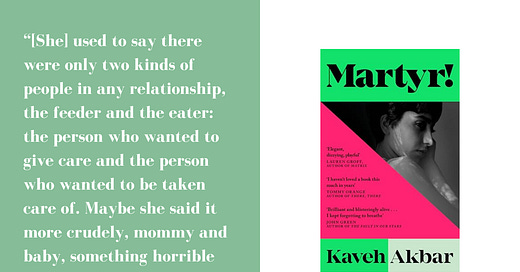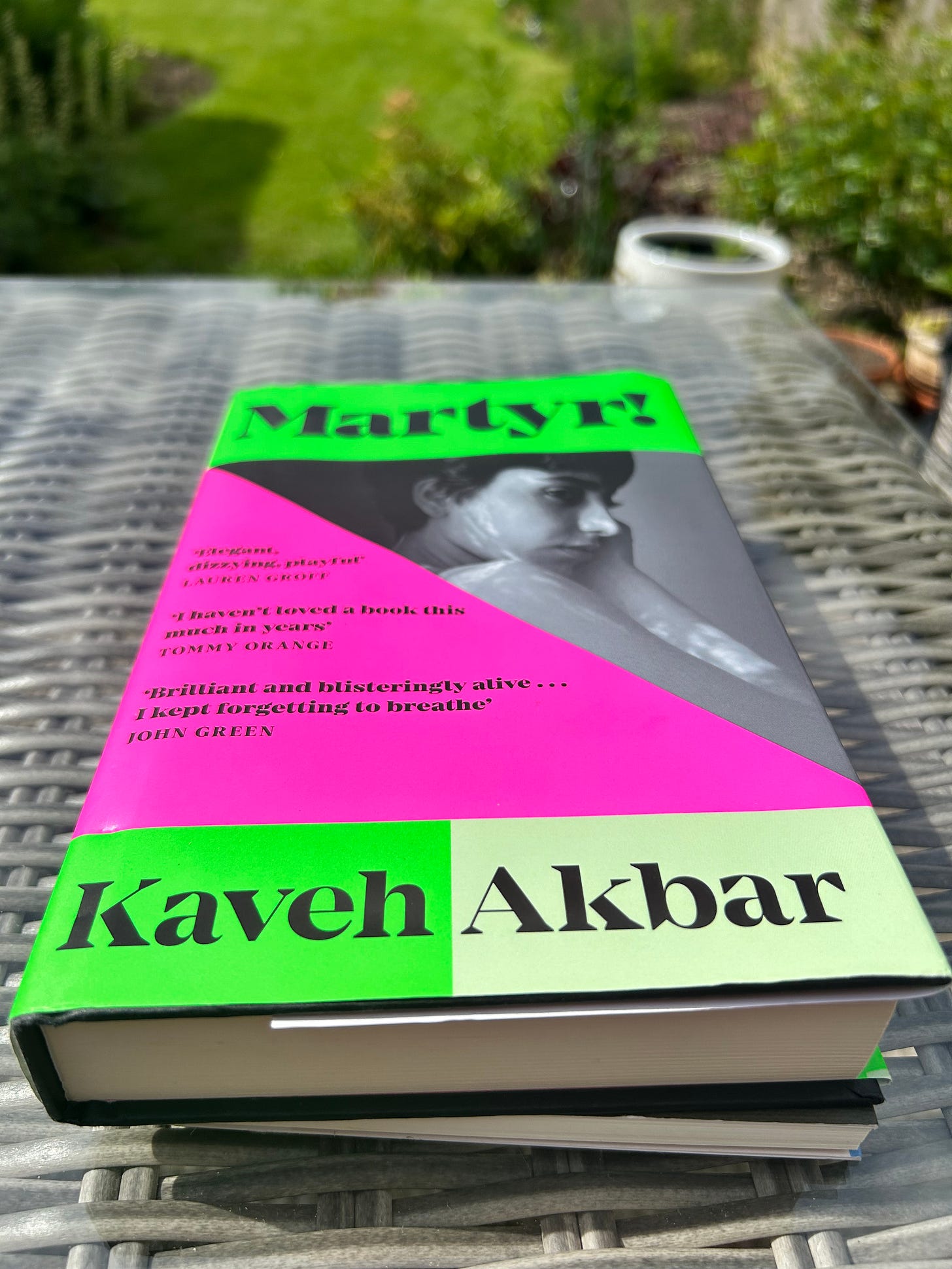I read Martyr! by Kaveh Akbar exclusively because Ann Patchett recommended it on a podcast about her novel The Dutch House. While answering a question about abandonment, whether a child is better off without a parent who doesn’t want to be there, Ann recommended the novel.
I didn’t love it. I didn’t really even like it very much, but I was compelled to finish because I wanted to write about it. In the end, however, I think The Dutch House addresses the question of parental abandonment much more poignantly than Martyr!, although that might come down to style preferences more than anything else. Akbar is a poet, and that is evident in his beautiful writing. However, I don’t think there was enough focus on the plot or character development to carry the story for me.
A brief summary: Cyrus is a writer and orphan, somewhere in his late twenties/early thirties. A recovering addict, his life feels very much on a knife-edge, and apart from the writing, pretty un-committed and unserious. He and his friends have the deep and knowing conversations young people have that make me cringe a bit, but then again, Cyrus has been through a lot and maybe does know some things. His mother died when he was a baby. Soon after, Cyrus immigrated to the US with his father, who worked his ass off for his entire life, then died when Cyrus was in college. Cyrus knows his mother’s plane was shot down by the US military; he doesn’t know that his mother didn’t really want to be a mother at all, but went along with her husband’s enthusiasm for having a family. Now, with a bit of money and a book idea, Cyrus wants to make sense of death, to figure out how to make death mean something rather than endure the senselessness of his mother’s death and father’s life. Ostensibly, he wants to engineer his own death to mean something.
I had a lot of issues with this characterization. While his loss makes it obvious why Cyrus wants to understand death, I was not convinced of how or why Cyrus’ own life should be sacrificed in pursuit of this understanding. Through conversations with his friends and chapters narrated by other characters, we learn more about the people who shape Cyrus, but I didn’t feel very close to him as the main character. The entire novel turns on his book idea, but I didn’t get it.
The most interesting character was Roya, although we get far less of her voice than I would have liked. What Cyrus knows of her is that she got on a plane a few weeks after he was born to visit her brother in Dubai. Most people, myself included, would be a bit surprised that any brand new mother would leave her baby so soon after birth, but we do learn of unusual circumstances that make this trip necessary. Later, following a big reveal, those questions about Roya’s commitment to her son, return. Was Roya a ‘bad mom’ because she got on a plane and left her baby son, or because she happened to die when she left him?
One of the things Patchett discusses in the podcast is the persistent phrase “my children would want me to be happy.” She says: “No, your children would not like you to be happy. They would like to never think about your personal life. They would just really like you to be there making pancakes.”
It seems to take Cyrus a very long time to realize that his mother had a life before a pointless death. Like most children, he doesn’t think of her as an individual person, rather as his mother. I write about this a lot because I think it is the root of all complication in mother-child relationships. Particularly in dysfunctional ones, each person fails to see the other as an independent person. Of course young children have a selfish mindset and we allow them that because they’re children. But there must come an age when we all recognize that everyone has had a life, including the people who raised us. I think Cyrus achieves this knowledge in the end, eventually even recognizing that his own life is individual and special, and deserving of being lived.





